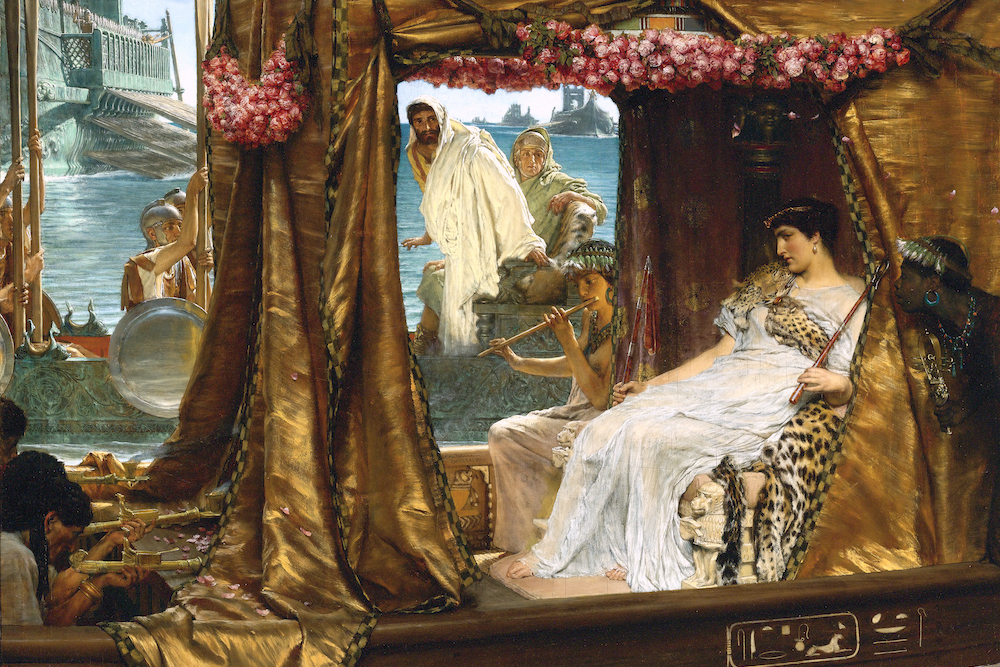
The Meeting of Antony and Cleopatra, 41 B.C. by Lawrence Alma-Tadema. Courtesy of Wikimedia Commons.
Women might have more control over their own destinies today than at any previous time in history. But in the great game of geopolitics, contemporary women rulers hold little sway. Even Angela Merkel, often referred to as the world’s most powerful woman, is merely the head of a weak coalition government in Germany, home to just one percent of the world’s people. To find women who truly dominated vast swaths of the planet requires a journey to the past—to the Hapsburg Empress Maria Theresa, Britain’s Queen Victoria, the 16th-century African warrior Queen Aminatu, or China’s Empress Wu. And no women in history have had more power over the known world than the ancient Egyptian rulers Cleopatra and Hatshepsut, who presided over her country’s busiest building era. How did these most powerful of women rulers succeed in a man’s world? And what lessons might their histories offer for a 21st-century world where women remain so badly represented in the uppermost ranks of societies? UCLA archaeologist Kara Cooney, author of The Woman Who Would Be King: Hatshepsut’s Rise to Power in Ancient Egypt, and University of Manchester Egyptologist Joyce Tyldesley, author of Cleopatra: Last Queen of Egypt, visit Zócalo to examine the legacies of the women who actually ruled the world.
The Takeaway
Women Rocked the Ancient World—But Ruling It Was Harder
Nefertiti, Cleopatra, and Hatshepsut Commanded Empires and Flipped Gender Roles While Pushing Against the Patriarchy
Cleopatra shattered the glass ceiling of power in ancient Egypt. Boudica, the fearsome first-century Celtic Iceni queen, “leaned in” by leading a bloody uprising against the occupying Roman army. But …






